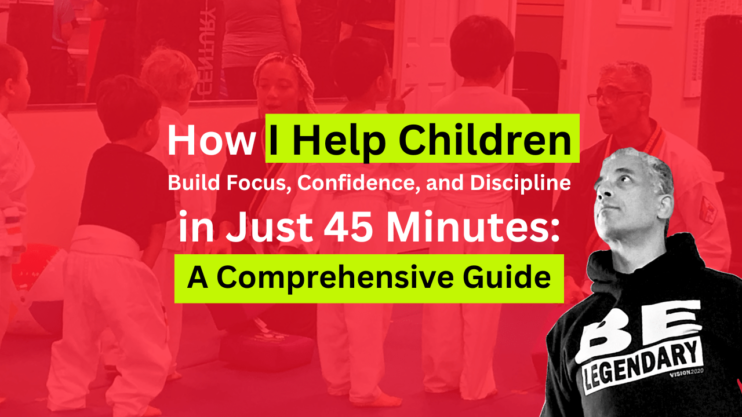In the bustling streets of The Bronx, a young boy dreamt of performing on international stages. That boy was me, Peter Liciaga. My journey from those streets to global platforms, and eventually finding my true calling as a martial arts teacher, public speaker, and entrepreneur, is chronicled in my book, “Living A Strong Life.” Through my experiences, I’ve learned the value of resilience, the power of a positive mindset, and the importance of strong relationships.
As an educator and a practitioner of positive psychology, my mission has always been to empower others, especially children. I believe that every child has the potential to overcome adversity, just as I did. My unique 45-minute session is a culmination of my life’s learnings, tailored to help children embrace their full potential.
Building Focus, Confidence, and Discipline in Children: A Comprehensive Guide
Parenting is one of the most challenging yet rewarding roles one can undertake. With the myriad of advice available, it can be overwhelming to discern which strategies are most effective. Drawing from the sciences of NLP (Neuro-Linguistic Programming), Positive Psychology, Trauma-Informed Care, ACEs (Adverse Childhood Experiences), and Coaching, we’ve crafted a comprehensive guide to help parents and grandparents nurture focus, confidence, and discipline in their children.
1. Understanding the Child’s World
Every child is unique, and their experiences shape their reactions. By being aware of Adverse Childhood Experiences (ACEs) and approaching children with Trauma-Informed Care, we can create a compassionate environment where they feel understood and safe.
2. Positive Reinforcement
Children thrive in environments where their strengths are recognized. By applying principles from Positive Psychology and NLP, we can ensure that our words and actions uplift them, fostering a positive self-image.
3. Effective Communication
Building a strong rapport with children is crucial. Techniques from NLP, such as mirroring and anchoring, combined with open-ended questions from Coaching, can pave the way for meaningful conversations.
4. Setting Boundaries with Empathy
Discipline doesn’t have to be harsh. By framing boundaries positively and understanding potential trauma triggers, we can set limits that are both effective and compassionate.
5. Building Resilience and Confidence
A child’s belief in their abilities can shape their future. Encouraging a growth mindset and setting achievable goals can boost their confidence and resilience.
6. Mindfulness and Emotional Regulation
Children, especially those with trauma, may struggle with emotional regulation. Visualization techniques from NLP and Positive Psychology can provide them with tools to navigate their emotions.
7. Routine and Structure
A structured environment provides children with a sense of security. By helping them establish routines, we give them a foundation upon which they can build their discipline.
8. Modeling Behavior
Children are keen observers. By embodying the values of focus, discipline, and confidence, we provide them with a real-life blueprint to emulate.
9. Seeking External Support
There’s no shame in seeking help. Recognizing when a child needs professional support is a testament to a caregiver’s commitment to their well-being.
10. Continuous Learning and Adaptation
As caregivers, our strategies should evolve with our children. Staying updated with the latest research and being adaptable ensures that our approach remains effective.
Ready to Dive Deeper?
If you’ve found this guide insightful and are curious about how these strategies can be tailored to your unique situation, I invite you to join me for a free 45-minute session. Together, we’ll explore how I’ve successfully implemented these techniques and how you can too.
Schedule your free session with me now and embark on a transformative journey for both you and your child.




